Seventh Row’s editors pick the twenty best films of 2021 so far, from Moffie (Oliver Hermanus) to True Mothers (Naomi Kawase) and more.
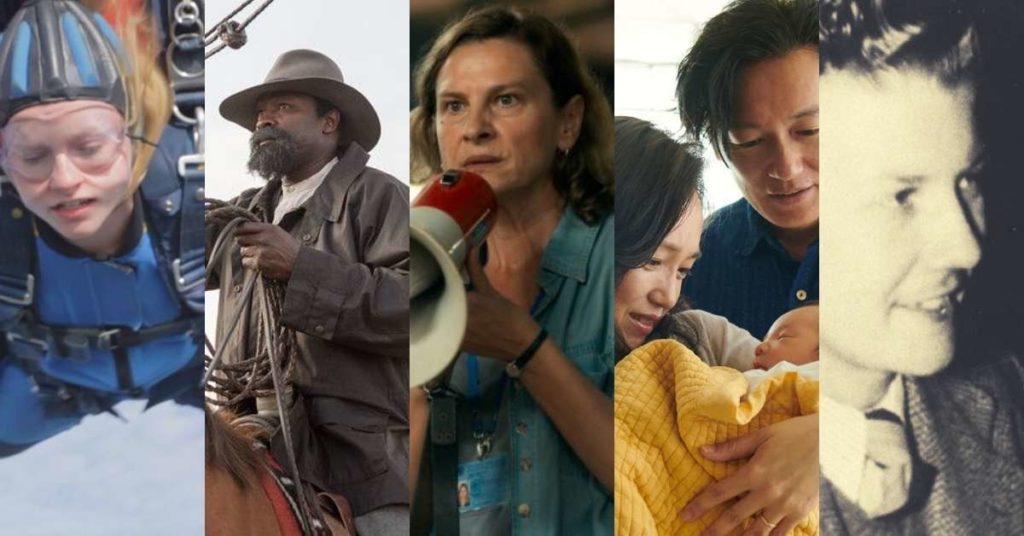
Discover one film you didn’t know you needed:
Not in the zeitgeist. Not pushed by streamers.
But still easy to find — and worth sitting with.
And a guide to help you do just that.
We’re just over halfway through 2021, and with a host of films by some of our favourite directors still to come, it’s time to take stock on the best films of the year so far. The films that come out from January to June are perhaps less splashy than the fall awards titles. But the first half of the year is often rich in brilliant independent and world cinema. Looking back on this year’s crop, the rest of 2021 has a high bar to live up to.
Among the twenty titles we’ve chosen to spotlight here (all of which were released in Canada and/or the US in 2021), we’ve not included the excellent The Perfect Candidate, Nadia, Butterfly, and Summer of 85, which some would consider 2021 releases. That’s because they were on on our 2020 list as #4, #8, and an honourable mention respectively.
Before we move on to the list, here are our honourable mentions, which are all well worth your time: Scenes from an Empty Church (Onur Tukel), Spoor (Agnieszka Holland), Sublet (Eytan Fox), Sugar Daddy (Wendy Morgan), and When Hitler Stole Pink Rabbit (Caroline Link).
20. Lucky (Natasha Kermani)
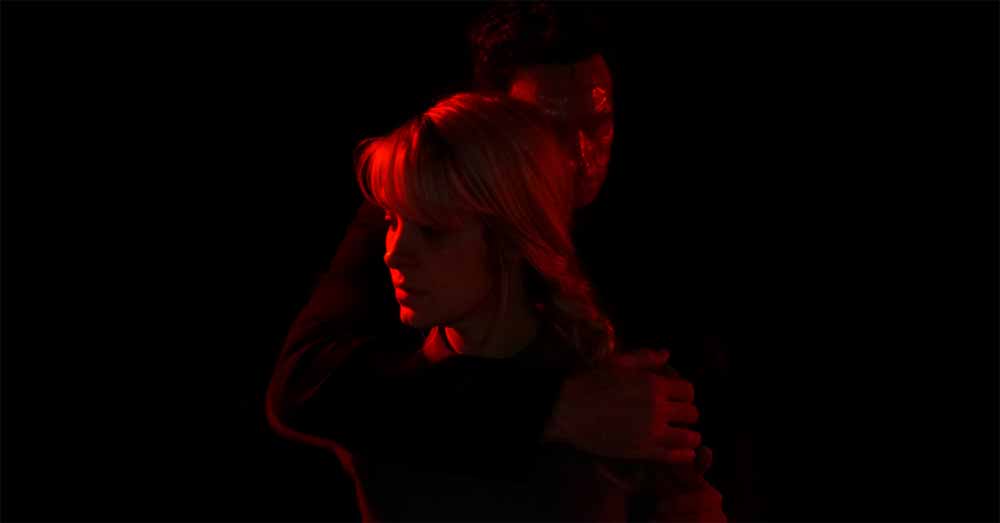
From the introduction to our interview: “What if you had a stalker who tried to kill you every night? And when you tell your husband, he responds, exasperated, that of course you do? That’s the premise of Natasha Kermani’s new film, Lucky, with a script by the film’s star, Brea Grant, which is equal parts funny, creepy, and wise.
When May (Brea Grant) is awoken in the middle of the night by the sound of someone breaking into her house, she wakes up her husband (Dhruv Uday Singh). When he tells her, with bored seriousness (and great deadpan from Singh) that, of course, it’s the man who breaks into their house every night to try to kill them, she’s not sure she heard him right — or that she’s even awake. Neither are we, and this moment was my first big laugh of the film, feeling equal parts extremely amused and absolutely terrified that someone would make light of something that horrifying. With a score that occasionally evokes the shower scene from Psycho, we’re primed to expect a straightforward slasher film, though the humour tips us off that there may be more going on beneath the surface.” Read the full interview.
Lucky is available internationally on Shudder.
19. ‘Til Kingdom Come (Maya Zinshtein)

The unlikely alliance between two groups of religious extremists — American Evangelical Christians and Israeli Jewish settlers — is the subject of Maya Zinshtein’s (director of the excellent Forever Pure) latest documentary about religious extremism. Zinshtein’s film explains that millions of American dollars have been funnelled into philanthropic efforts in Israel to help marginalized Jewish people, while the local American Evangelical Christian communities remain some of the poorest parts of the US. Most bizarrely, those Evangelical Christians are antisemitic, both self-proclaimed or obviously so from the speeches Zinshtein captures — one minister talks about how the holocaust happened because God allowed it to. Their interest in Israel is not to help the Jews, really, so much as to ensure they have a smooth path to Jerusalem should armageddon happen, which they expect will kill off two thirds of the Jewish population, while causing the other one third to convert.
As Zinshtein did brilliantly in Forever Pure, which explored how religious extremism played out through a soccer team, she once again reveals the irrational drivers of both the Evangelicals, and the Israeli communities that welcome them. Zinshtein paints this as another example of American interventionism done out of ignorance for the local issues, and only exacerbating local tensions. One of the Evangelicals’ crowning achievements was persuading Donald Trump to move the US embassy in Israel to Jerusalem, which is still contested territory — a move that resulted in violence, injury, and death among local factions. Zinshtein offers us a window into how both the allied Americans and Israelis think, and the ignorance which allows them to become bedfellows and cause harm. It’s a harrowing film, but a fascinating and engaging one. Alex Heeney
‘Til Kingdom Come is available to stream and rent in Canada, US, and UK.
18. Red Snow (Marie Clements)
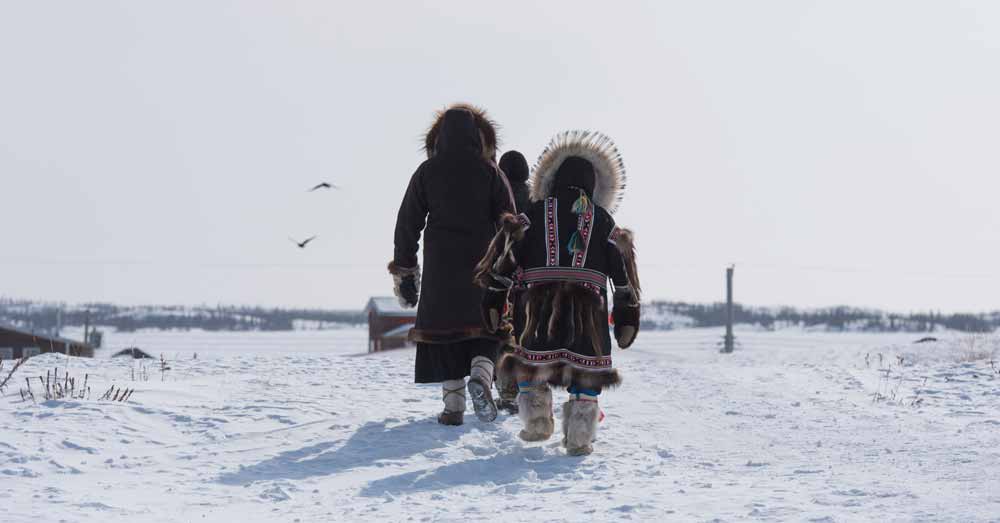
One of the most inventive films of the year, Marie Clements’s Red Snow is part war film, part western, and part the story of the effects of colonialism. The magnetic and super talented Asivak Koostachin stars as Dylan, a Gwich’in soldier in the Canadian military who gets captured by the Taliban. This puts him in a bizarre position: he identifies as Canadian when he’s assumed as American, but as an Indigenous man, he doesn’t feel Canadian enough to be an asset worth rescuing for a ransom by the Canadian military. At the same time, as a soldier in Afghanistan, he’s somewhat serving as a force of colonisation whilst the Taliban is literally occupying the territory. This is rich territory for exploration, though in the early stages of the film, the dialogue often strays into cliche.
Still, the major achievement of Red Snow is the stunning visuals, which are paired with a non-linear narrative, which circles around memory, Gwich’in stories, and past romantic trauma. Working with cinematographers Robert Aschmann and Roger Vernon, and shooting entirely in Canada, Clements believably evokes the faraway places where the film is set. Though the film is particularly on point when in Dylan’s home territory, showing his connection to the land and snow. There’s a surreal, poetic quality to the storytelling, too, which feels more like Monkey Beach than any war movie I can think of, but then, this is Indigenous storytelling through and through. Despite its flaws, Red Snow is visually and intellectually inventive and is guaranteed to be unlike anything you’ve ever seen. AH
Watch Red Snow for free on CBC Gem in Canada and stream it on Netflix in the US.
17. Violation (Madeleine Sims-Fewer, Dusty Mancinelli)
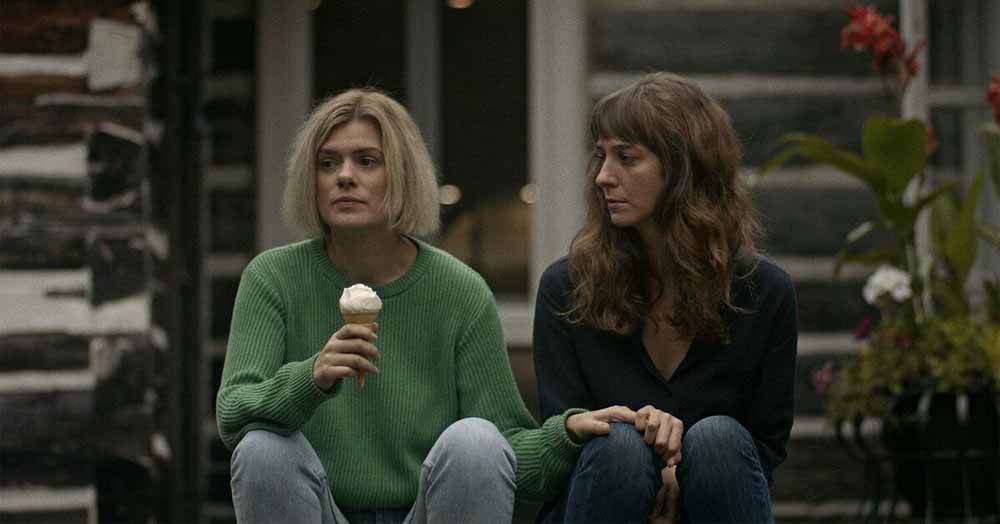
Violation, a bold addition to the rape revenge film canon, has been on a rocky journey with the Seventh Row team. We first published a mostly negative review by Alex at TIFF 2020, in which she praised the ideas the film introduces in the first act, but expressed disappointment in how the film then gets lost in gratuitous violence. Then, after Seventh Row writer and regular podcast guest Lena Wilson expressed adoration for the film on our Sundance 2021 episode, and later reviewed the film for the New York Times, Alex started to warm to the film. That’s what led me to watch and really like it a few weeks ago (I’m more enthusiastic about cinematic blood and guts than Alex is).
I wrote an essay in our ebook Beyond empowertainment: Feminist horror and the struggle for female agency about the changing face of the female monster and how many films sand off the edges of these ‘monsters’ by making them cold-blooded sociopaths. I argued that the violence these women perpetrate is less interesting if they don’t feel any conflicted emotions over it. Violation is the perfect answer to that complaint. It follows Miriam (Madeleine Sims-Fewer) in the wake of being raped by her sister’s husband, who tries to convince Miriam that it was a consensual act. Her revenge is bloody — you’ll need a strong stomach to get through the second half of the film. But she also screams and cries throughout, conveying a tangled mix or rage, doubt, disgust, and sadness as she butchers her rapist. It’s a potent counterpoint to rape revenge films that try to dilute the frighteningly complex feelings a victim of sexual violence feels toward their rapist. At the same time, it asks us to question if completing an act of revenge will offer Mirian any catharsis, or if there’s just more emptiness waiting for her on the other side. Orla Smith
Violation is available internationally on Shudder.
16. The Courier (Dominic Cooke)
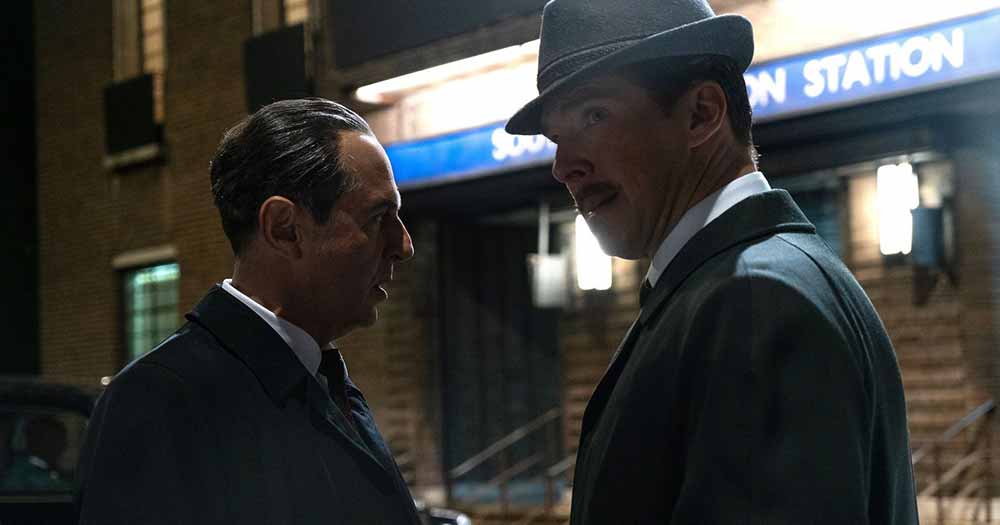
From the introduction to our interview: “Set in the early 1960s, The Courier is based on the true story of British businessman Greville Wynne (Benedict Cumberbatch) who suddenly found himself working as a Cold War spy helping to put an end to the Cuban Missile Crisis. When Oleg Penkovsky (Merab Ninidze) made contact with the CIA about becoming a Russian source, they needed an amateur like Greville to do the leg work of getting his information, so as not to arouse suspicion. The film follows them through the thrill of the initial intelligence exchange, the deepening friendship that forms, and the aftermath of discovery. Just as director Dominic Cooke’s On Chesil Beach explored the constrictive sexual mores of the time, Cooke’s The Courier is also about the restrictive societies that define both Greville’s and Oleg’s existence.” Read the full interview.
Rent The Courier on VOD in Canada and the US.
15. Moffie (Oliver Hermanus)
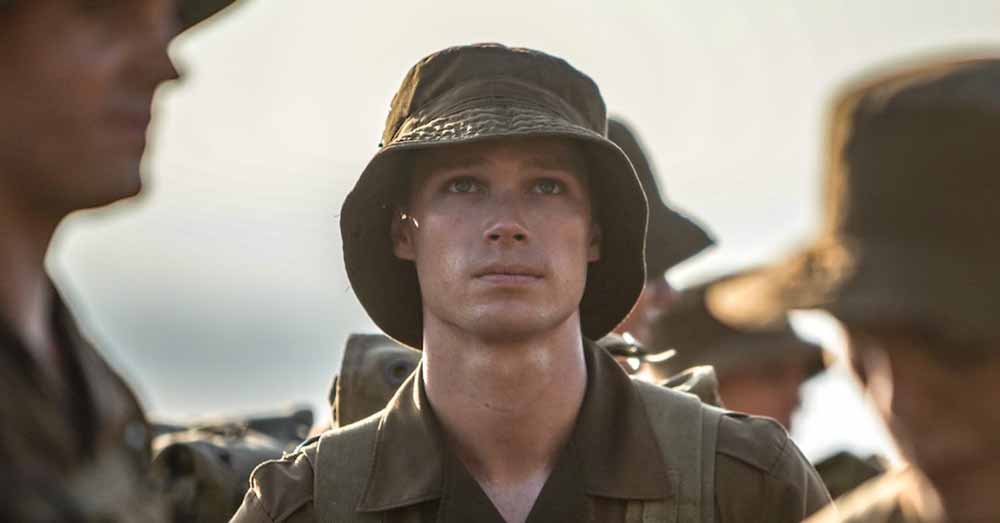
From the introduction to our interview: “South Africa, 1981: at seventeen, all white boys are conscripted into the army for two years, forced to fight in the Border War, a white supremecist campaign from a white supremecist institution. Perhaps even more important to the government than getting foot soldiers for the battles is the indoctrination of an entire generation to uphold apartheid. Here, young men learn that their goal is to dominate, to hold power over others. It starts with white supremacy, but as Oliver Hermanus’s Moffie dissects, it’s a short hop and a skip to other forms of oppression, like homophobia.” Read the full interview.
Stream Moffie on Hulu in the US and Virgin TV Go in the UK. Rent on VOD in Canada, the US, or the UK.
14. Identifying Features (Fernanda Valadez)
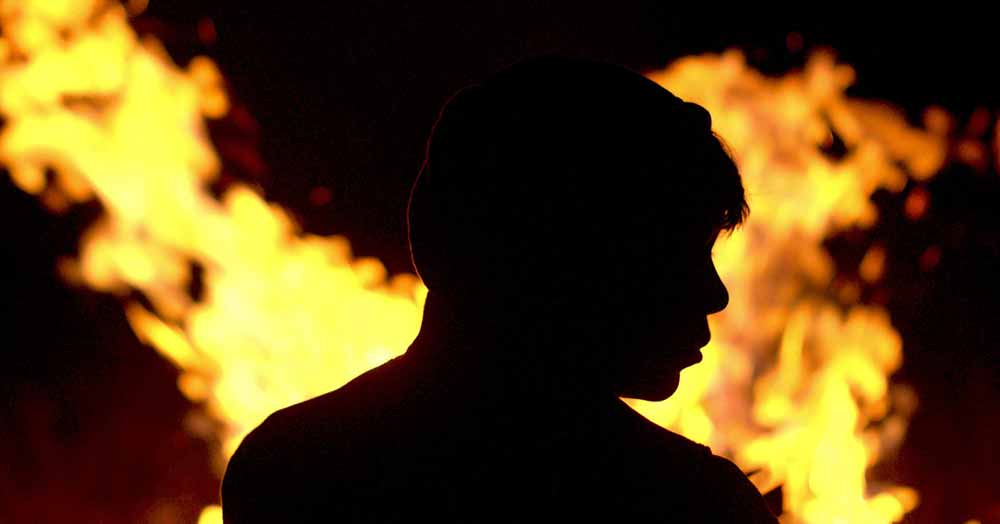
From the introduction to our interview: “In the second scene of Identifying Features, the camera stays fixed on Magdalena (Mercedes Hernández) and her friend in a police station as they plead for information on the whereabouts of their missing sons. Both boys left home to cross the border from Mexico to the US, and neither of the women have heard from either since. We never see the face of the man Magdalena and her friend are talking to, who eventually relents and hands the women a binder of photos of corpses that were found near the border. After a few minutes of flipping through pages, Magdalena’s friend breaks down when she recognises her son’s body; Magdalena is left sitting there, stunned, still unsure of what happened to her son or if she’ll ever find out.
This is just one of several scenes in which writer-director Fernanda Valadez limits what we can see, focusing solely on Magdalena’s face, which gives her importance in the frame even in scenes where authority figures treat her as unimportant. She travels to the border, determined to find her son, but wherever she turns, she’s met with silence and people who see her as just another desperate person chasing a dead end. Along the way, she meets Miguel (David Illescas), a young migrant worker who was recently deported from the US back to Mexico, and who becomes a sort of son figure to Magdalena.” Read the full interview.
Stream Identifying Features on BFI Player in the UK. Rent on VOD in Canada and the US.
13. Still Processing (Sophy Romvari)

From the introduction to our interview: “In Sophy Romvari’s personal short documentary, Still Processing, she holds memories in her hands. After a long negotiation with her parents over her desire to make a film reflecting on her two older brothers’ deaths, her father presents her with a box of photos, videos, and film negatives. We watch as, for the first time, she takes them out. In black and white photographs taken by her father, we see children at rest and play. In one photo, a young Sophy is captured in closeup, looking directly into the camera. It’s a confrontational image, and given the film’s subject, it’s hard not to read melancholy in her expression. The photos capture an almost foreboding doom. They capture fleeting expressions that are transformed by events that follow.” Read the full interview.
Still Processing is available internationally on Mubi.
12. I Blame Society (Gillian Wallace Horvat)
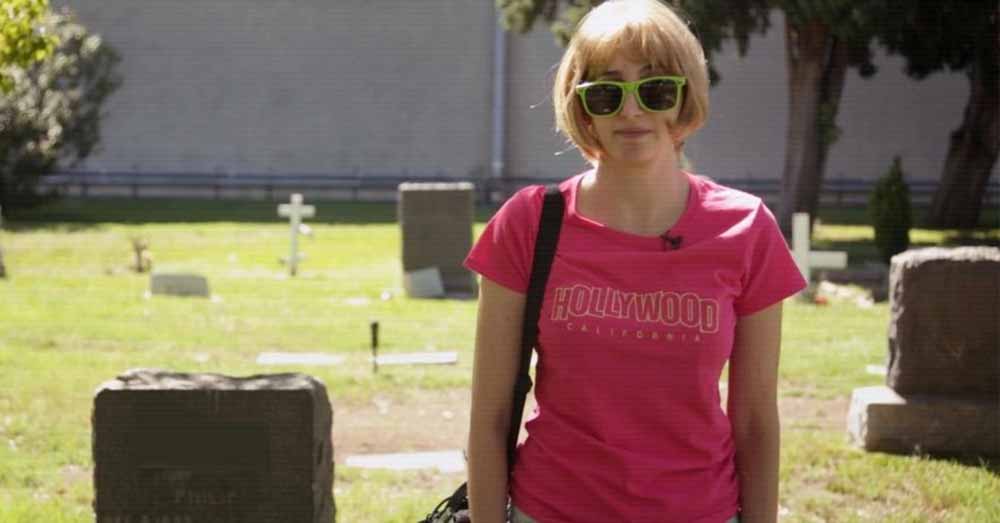
From the introduction to our interview: “When I first covered I Blame Society, at the Indie Memphis Film Festival, I wrote: ‘I still haven’t quite figured out what the film is about in a broad sense: is it a critique of narcissistic artists who’ll do anything to make a good film, or a takedown of the gatekeepers who have driven this struggling female filmmaker to insanity? Or both?’ A couple months and a rewatch later, I’ve come to love the fact that the film is both. I Blame Society is that rare thing: a genre film about a woman fighting back against the patriarchy that also acknowledges her own privilege and complicity.” Read the full interview.
Stream I Blame Society on Hoopla in Canada and the US. Rent on VOD in Canada, the US, and the UK.
11. My Donkey, My Lover & I (Caroline Vignal)
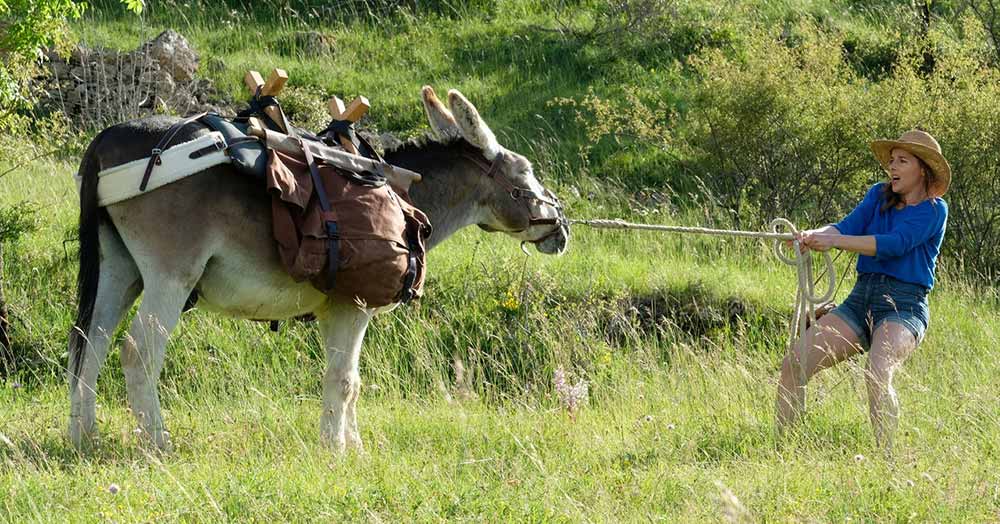
From our review: “We first meet Antoinette (Laure Calamy) in her classroom, where she has her elementary school students, counting, heads down on their desks, while she changes into a silver dress at the back of the class. It’s for a class concert where she starts belting out a tune with such fervor that she starts to eclipse her dressed-in-black students as the centre of attention. It’s also the first sign that Antoinette falls somewhere on the bananas scale from zero to Sibyl (who, of course, is 100% bananas), and that the film is going to be a gentle comedy slightly at the expense of Antoinette’s shenanigans.” Read the full review.
Stream My Donkey, My Lover & I on Virgin TV Go in the UK, or rent it on VOD.
10. Anne at 13,000 ft (Kazik Radwanski)
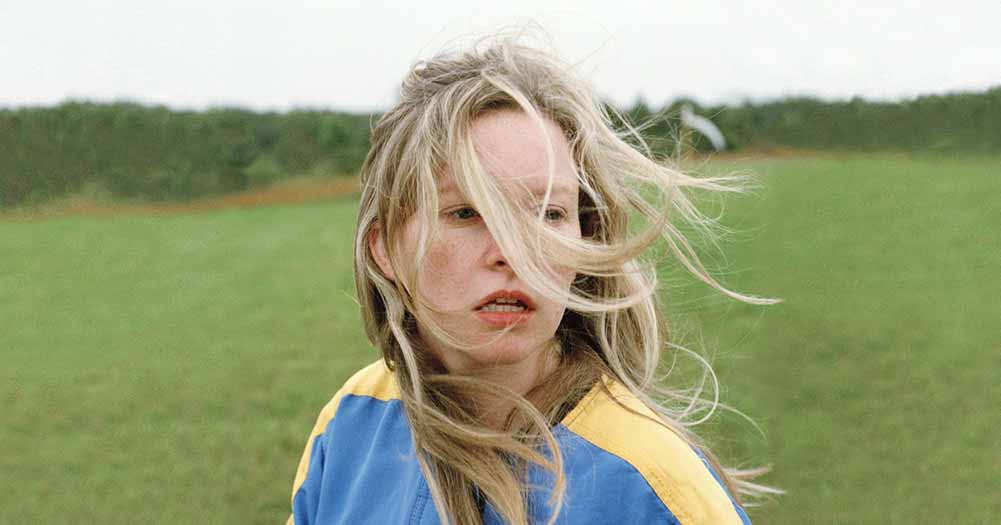
From the introduction to our interview: “In Anne at 13,000 ft, Anne (Deragh Campbell) suffers from an unspecified mental illness (likely along the lines of bipolar disorder), and she’s reassimilating into everyday Toronto life after being institutionalised. Work, responsibilities, and socialising can be quite overwhelming for Anne. The choppiness of the cutting and the speed at which we whirl through the eponymous Anne’s life is fitting for such an unstable character.” Read the full interview.
Rent Anne at 13,000 ft at the digital TIFF Bell Lightbox in Canada.
9. Profile (Timur Bekmambetov)
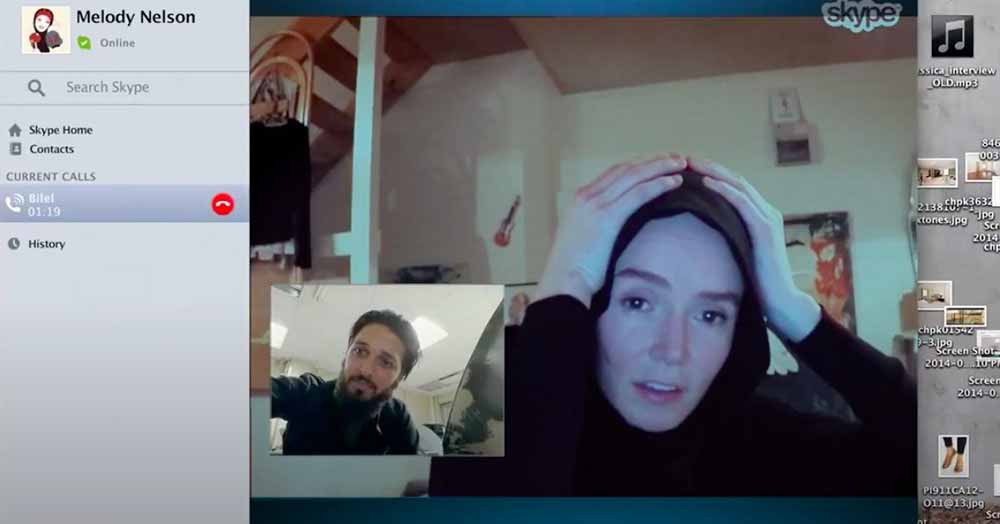
The exciting new genre of Screen Life, pioneered Timur Bekmambetov (he produced films such as Unfriended and Searching), is only just getting started, and Profile is possibly the best film in the genre yet. A Screen Life film is a film that takes place entirely, or mostly, on a device screen, whether than be a phone, a laptop, or a desktop. More than just a gimmick, these films are rapidly developing a whole new cinematic language.
In Profile, Screen Life is used to tell the true story of a journalist (here renamed Anna and played by Valene Kane) who posed as a teenage girl online in order to infiltrate the ISIS recruitment process. She’s quickly targeted by a recruiter, Bilel (Shazad Latif), who courts her over messenger apps, social media, and regular Skype calls. The recognisable, mundane setting of a desktop makes the world process feel all too real, which makes Profile a nail-bitingly intense film. More than that, though, Bekmambetov’s film does a brilliant job of creating empathy for the young girls roped in by ISIS recruiters. He allows us to think think, just as Anna does, that we’re smarter than those immature girls, before pulling the rug out from under us to reveal that we, too, had been tricked. OS
Rent Profile on VOD in Canada and the US.
8. Slalom (Charlène Favier)
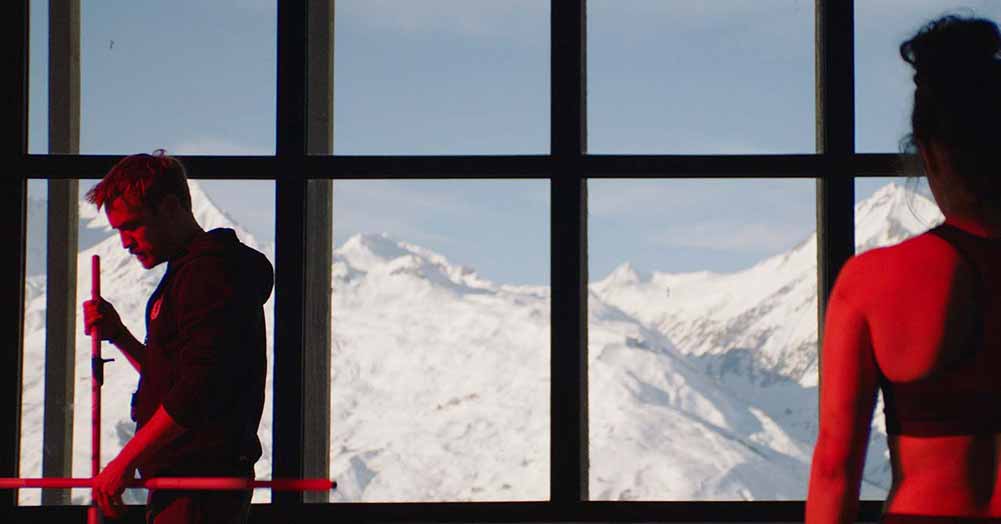
From the introduction to our interview: “Slalom centres around Lyz (Noée Abita), a fifteen-year-old who is starting to train in slalom skiing at a high level at a special school for athletes. Her mother has just gotten a job in another city, leaving Lyz to fend for herself in their own apartment, isolated both at home and at school where she’s a new student. Here, she is coached by Fred (Jérémie Renier), who eventually takes a liking to Lyz, supporting her as an athlete while also, increasingly, taking advantage of her sexually. He’s a confusing figure for Lyz because he plays hot and cold: kind one minute and cold the next, often due to his own self-loathing. She relies on his support to achieve her dream of being an Olympic skier, which means speaking out about the abuse she’s experiencing feels impossible.” Read the full interview.
Rent Slalom on VOD in Canada, the US, and the UK.
7. No Ordinary Man (Aisling Chin-Yee, Chase Joynt)
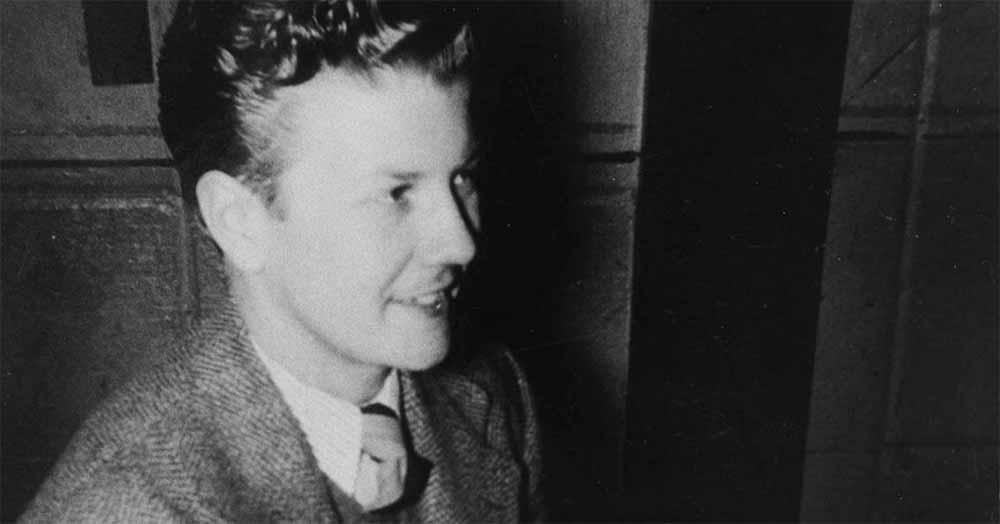
From the introduction to our interview: “The story No Ordinary Man tells is one of lost transgender history that’s finally being reclaimed. The film’s subject is Billy Tipton, an influential jazz musician who worked between the 1930s and 1970s. It wasn’t until 1989, when Tipton died in the arms of his son, Billy Jr., that Tipton’s family and the public discovered that he was assigned female at birth. After his death, Tipton’s story was twisted: Tipton was unequivocally a trans man, but the cis-dominated media presented him as a woman who dressed as a man in order to get a foot in the door in the music industry. Even the most cited text about Tipton’s life, Suits Me: The Double Life of Billy Tipton by Dianne Middlebrook, framed his story around this harmful narrative.
In Chin-Yee and Joynt’s hands, No Ordinary Man is no ordinary biographical documentary. They go way beyond the standard archival footage and talking head interview approach to tell Tipton’s story. Joynt explained that ‘understanding that there was no moving image footage of Tipton was both a restriction and an opportunity for us to immediately start thinking creatively beyond the bounds of reenactment and other ways that biopics tend to be created.’ The film features photos and audio recordings of Tipton, as well as his music, and his life story is told through the words of talking-head experts, most of whom are trans. But another huge part of the film are “auditions” where the filmmakers invite a whole host of diverse transmasculine actors to act out and then dissect scripted scenes from Tipton’s life.” Read the full interview.
Rent No Ordinary Man on VOD in Canada. No Ordinary Man will be released in the US tomorrow (July 16th).
6. John Ware Reclaimed (Cheryl Foggo)
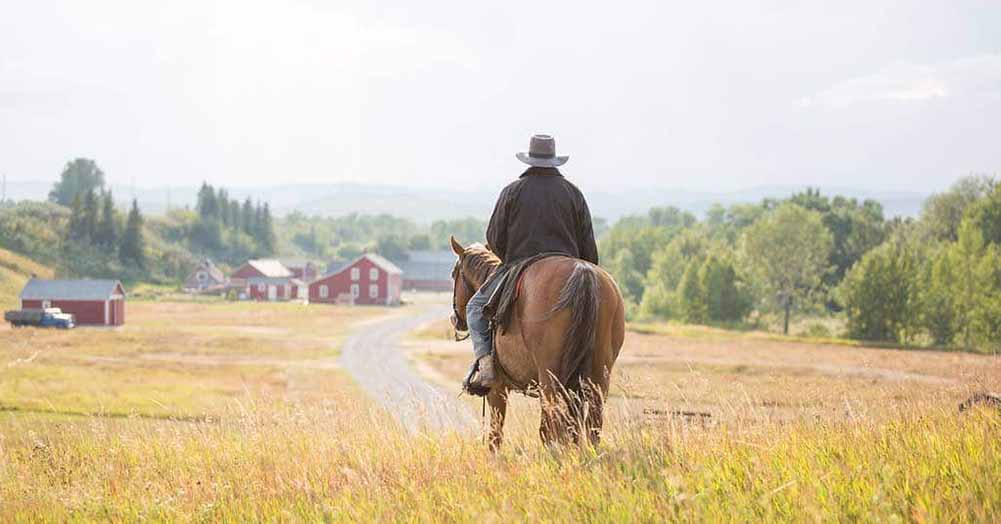
From the introduction to our interview: “It’s one of Canada’s best kept secrets that there’s a rich history of the Black diaspora in the Alberta prairies dating back over a century ago. What little is known about that history has been condensed in the popular consciousness to the story of cowboy John Ware, an enslaved American who moved to Canada and became a successful rancher. But even the historical accounts of him are limited to a single book, John Ware’s Cow Country by Grant MacEwan, published in 1960, written by a white man, and full of racist stereotypes about Black masculinity. Cheryl Foggo’s moving, enlightening, and appropriately infuriating new documentary, John Ware Reclaimed, attempts to reclaim not just John Ware’s story from the biased history books but the history of Black Canadians in the prairies.” Read the full interview.
Watch John Ware Reclaimed for free on the NFB website. Rent on iTunes in the US and the UK.
5. Sweat (Magnus von Horn)
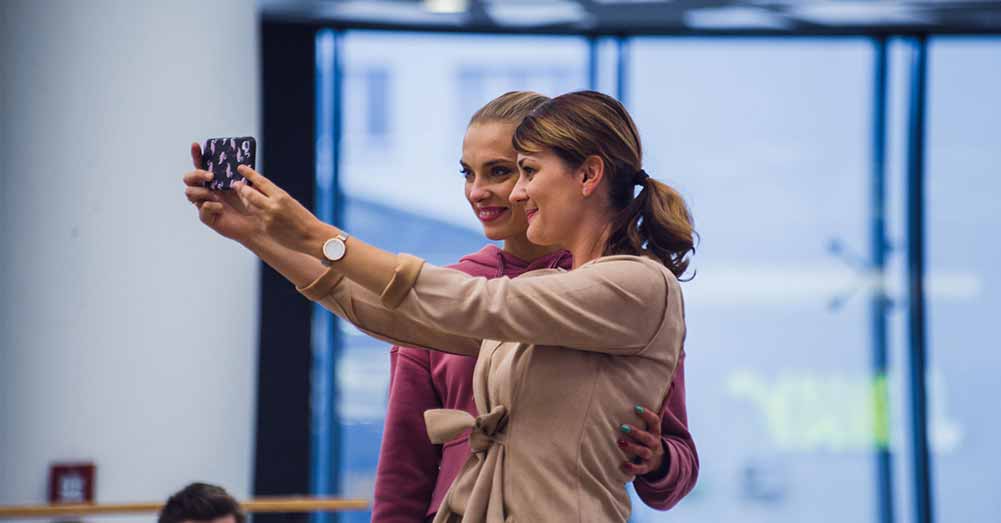
From the introduction to our interview: “If you’re on social media, then you probably interact with professional influencers every day — yet very few films explore the psychology of an influencer. Perhaps that’s because it’s a relatively new job, younger than social media itself, and one that people have a tendency not to take seriously. Watching Sweat at TIFF last year felt like a revelation. It was the first film I’d seen about an influencer that treated her with compassion, psychological complexity, and didn’t dismiss her as shallow or comical.” Read the full interview.
Sweat is available internationally on Mubi.
4. Hope (Maria Sødahl)
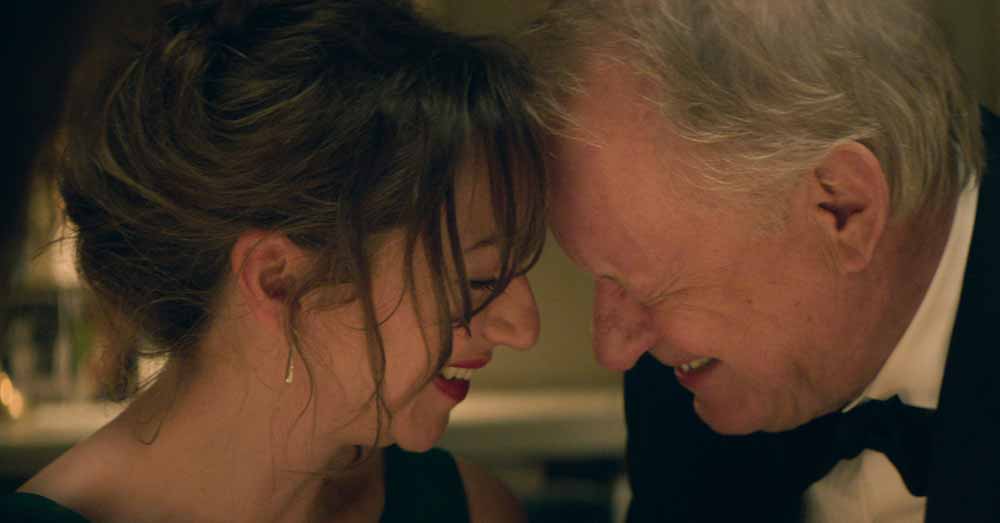
From the introduction to our interview: “The week between Christmas and New Year’s proves a crucible for a married couple’s relationship in Maria Sødahl’s smart and sensitive drama, Hope. Unlike most dramas about cancer (including Ordinary Love also at TIFF19), the film is not about the initial diagnosis and treatment; instead Anja (Andrea Bræin Hovig) has already survived lung cancer, but just before Christmas, she discovers the cancer has spread, and surviving this is unlikely. The first bout of cancer is what kept the marriage together after a rough patch; the second diagnosis threatens to split them apart, as Anja starts to unleash all of her pent up anger — not helped by the medication the steroids she’s on, which alter her behaviour.” Read the full interview.
Hope is available on VOD in Canada, the US, the UK, and internationally.
3. True Mothers (Naomi Kawase)

From our review: “True Mothers is the rare story of an adoption told from two perspectives and in two parts: first, the adoptive mother, Satoko (Hiromi Nagasaku), and then, the birth mother, Hikari (Aju Makita). Both women’s stories start before their son was born, and both women’s stories continue well after, until they meet again. Because Hikari got pregnant too young, at 14, her family is ashamed of her, attempting to hide the pregnancy altogether, and then expecting her to get over the traumatic separation from her child immediately. By contrast, Atoko was unable to get pregnant due to her husband’s infertility, a source of such shame for him that he suggests she consider divorcing him on learning of his problem. Their inability to get pregnant is a source of shame for both of them. This is magnified for all parties involved because Japanese culture strongly emphasizes genetic bonds, something Hirokazu Koreeda explored less effectively in Like Father, Like Son.” Read the full review.
Stream True Mothers on Virgin TV Go in the UK. Rent on VOD in Canada, the US and UK.
2. Charlatan (Agnieszka Holland)
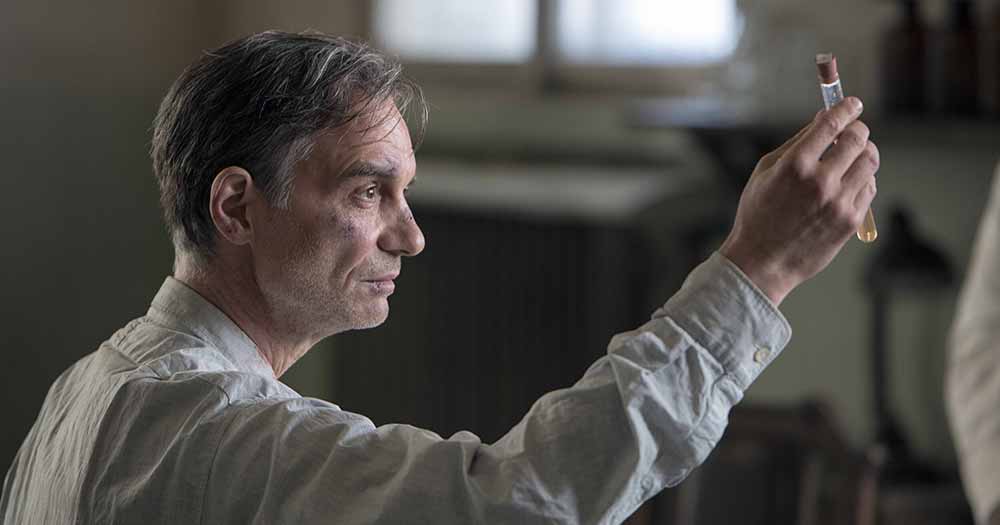
From our review: “Polish filmmaker Agnieszka Holland (The Secret Garden) has followed up her biopic of Gareth Jones and his discovery of the 1930s Ukrainian famine, Mr Jones, with Charlatan, a post-war biopic about Czech herbalist and healer Jan Mikolášek (1889-1973). While Mr Jones was about revealing an untold harrowing part of history and how one foolhardy man brought this story to light, Charlatan uses Mikolášek as a sort of metaphor for post-war communism in order to ask whether the new regime is really a form of liberation or just a variation on a fascist theme.” Read the full review.
Rent Charlatan in the UK, Canada, and the US.
1. Quo Vadis, Aida? (Jasmila Žbanić)
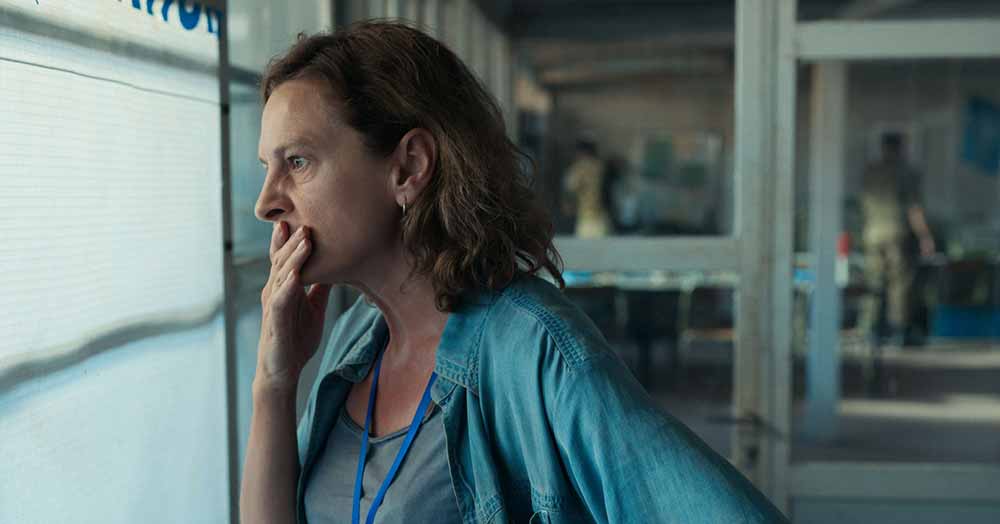
From the introduction to our interview: “Jasmila Žbanić’s Quo Vadis, Aida?, about the 1995 Bosnian genocide in Srebrenica, has stuck with me since I first saw it at TIFF last September. It’s one of the smartest, most empathetic, and complex films I’ve ever seen about a genocide, with an eye for both the individual human lives affected and the bureaucratic structures that allowed the genocide to happen.
Žbanić’s protagonist, Aida (the fierce Jasna Đuričić), is a translator, so she has one foot in the community of Srebrenica (where she’s from) and another in the offices of the UN, for whom she’s translating. Over the course of a few days, the Serbian army invades Srebrenica, and the townspeople gather in and around a nearby UN shelter, like sitting ducks at the mercy of Serbian General Mladić (Boris Isakovic). Throughout the chaos, Aida remains squarely focused on getting her husband and two sons to safety.” Read the full interview.
Read our resource page on Quo Vadis, Aida?.
Stream Quo Vadis, Aida? on Hulu in the US and Virgin TV Go in the UK. Rent on VOD in Canada, the US, and the UK.
You could be missing out on opportunities to watch the best films of 2021 so far at virtual cinemas, VOD, and festivals.
Subscribe to the Seventh Row newsletter to stay in the know.
Subscribers to our newsletter get an email every Friday which details great new streaming options in Canada, the US, and the UK.
Click here to subscribe to the Seventh Row newsletter.
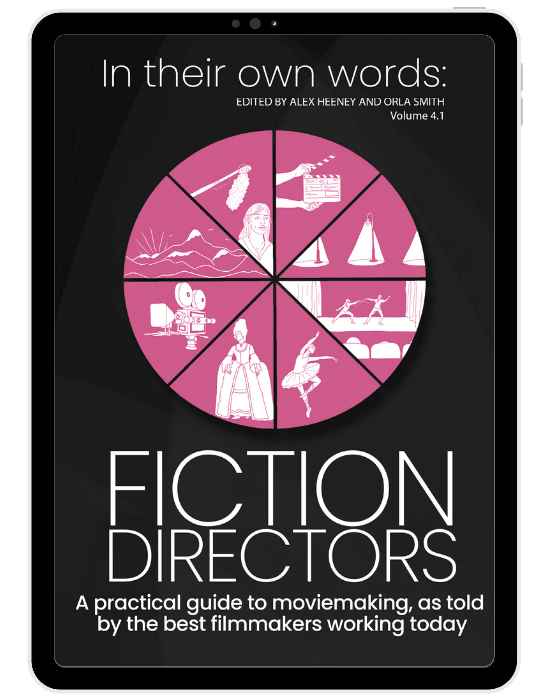
Discover how the best filmmakers working today approach filmmaking
A practical guide to moviemaking, as told by the best filmmakers working today.

